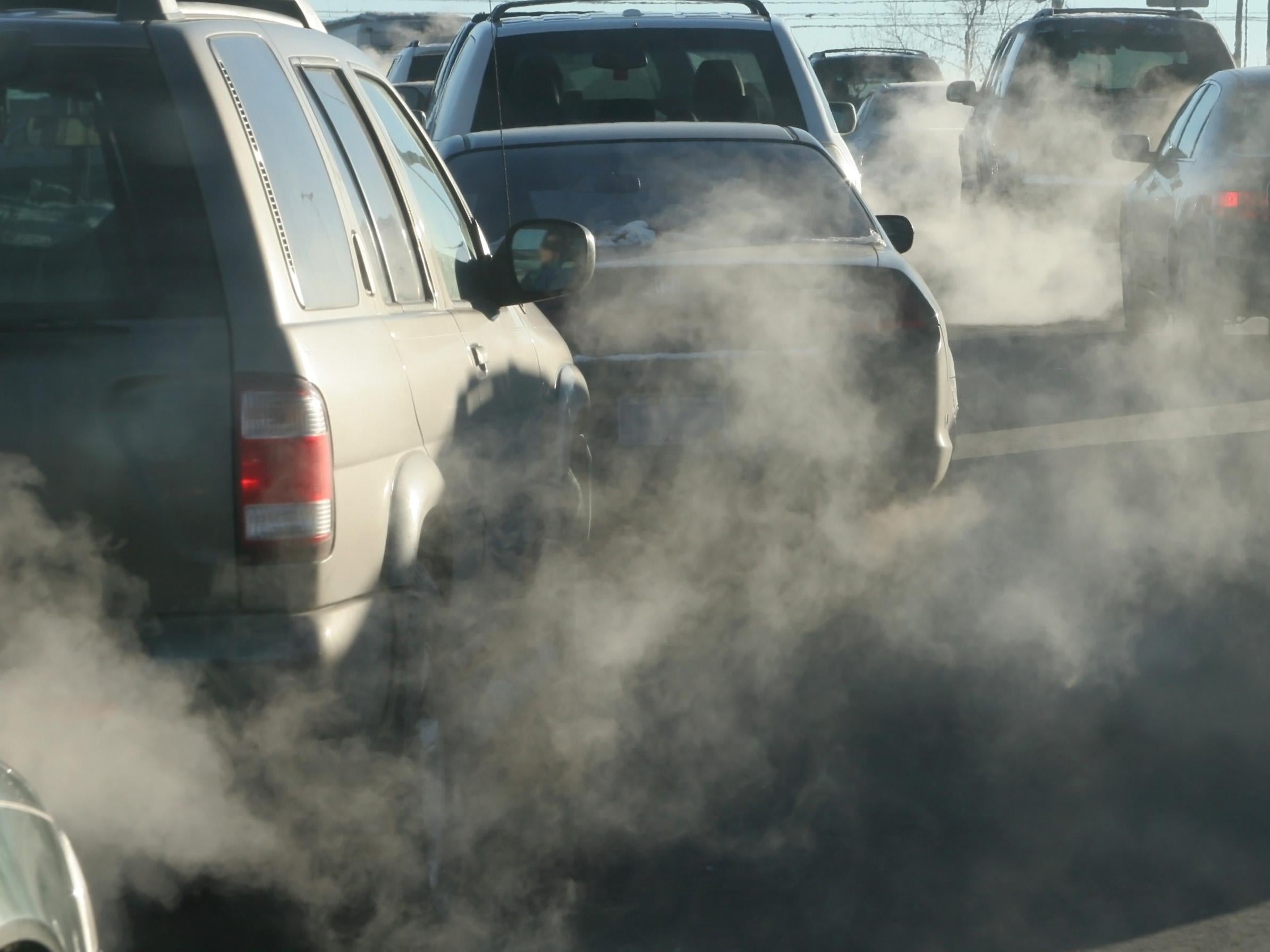Why is the UK’s effort to cut pollution from cars stalling so badly?
Analysis: Official government figures show overall greenhouse gas emissions continue to fall, but transport is still letting the side down when it comes to cutting pollution, as Josh Gabbatiss explains


To the casual observer, the latest official greenhouse gas figures paint a promising picture of the nation’s efforts to fight climate change.
Globally these gases may be on the rise, but the UK’s data suggest the government’s boast that it has a “proven track record in tackling climate change” is well founded.
In this context, it is easy to paint the responses to the new figures by the usual parade of green campaigners, opposition politicians and climate experts as needlessly dour.
Instead of praising the progress that has been made, they focus on motorised transport, which continues to pump out nearly as much climate-harming pollution as it did three decades ago.
But why single out cars for criticism when as a nation we have been so successful at slashing emissions?
The greatest progress in greening our economy has been made in electricity production and use. Coal generation has been largely eradicated, as has oil, to be replaced with gas, wind power and bioenergy. Homes and businesses are more energy efficient too.
Victories will continue to come thick and fast in this area as turbines and solar panels replace fossil fuels, but there will soon come a time when they can no longer disguise other sectors’ shortcomings.
Transport by contrast has been difficult to decarbonise. Electric cars are only just beginning to emerge as viable alternatives to conventional gas guzzlers, and the tiny gains that have been made have largely come from fuel efficiency and biofuels blended with diesel and petrol.
Meanwhile progress in aviation and shipping, some of the trickiest areas in which to cut emissions, is painfully slow. Fortunately for ministers, international flights are not included in the current set of figures.
Still, the challenge of turning transport green does not excuse government inaction, and the concern is that the UK’s achievements will be used to excuse developments that have no place in a country that takes climate change seriously. Indeed, this already seems to be happening.
Just look at Chris Grayling’s assertion that Heathrow expansion is compatible with Britain’s climate targets, despite independent assurances to the contrary. Combine that with cash-starved local train services, a £30bn upgrade for roads and poor investment in cycling infrastructure, and the sector’s lack of progress in cleaning up its act makes more and more sense.
Last year Lord Deben, chairman of government advisers the Committee on Climate Change (CCC), lambasted ministers like Mr Grayling for dragging their feet. The latest figures have confirmed Britain is safely on track to meet its targets for the next few years, but the committee’s analysis suggests the low hanging fruit are running out.
Currently, the government is set to miss the legally binding target it has set itself for 2027, in order to inch towards an 80 per cent cut in emissions by 2050. If the country ups its ambition even further and aims to be essentially carbon neutral by then – a target encouraged by the Paris climate agreement – the changes will have to be more significant.
Not all these changes have to be complicated. People are driving roughly the same distance every year as they were in 1990, so why not give public transport a boost? Other European nations – and even Scotland – have set more ambitious targets for phasing out non-electric cars than the UK government, so it would make sense to take a leaf out of their book too. If the country wants to keep its place as a climate leader, it needs to make sure no sector is left behind.
Join our commenting forum
Join thought-provoking conversations, follow other Independent readers and see their replies
Comments